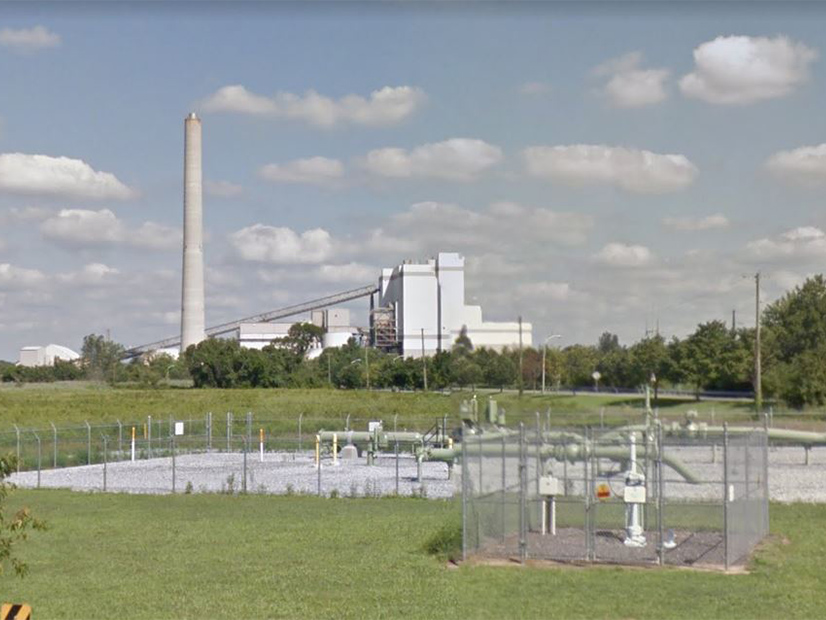The last two coal-fired electricity generation units in New Jersey will close under an agreement approved Wednesday by the New Jersey Board of Public Utilities (BPU) between the plants and the utility they sold power to for more than three decades.
The BPU backed a petition filed by Atlantic City Electric (ACE) (NASDAQ:EXC) seeking to modify power purchase and sales agreements that the South Jersey utility held with Chambers Cogeneration and Logan Generating Plant, the board said in a release. As a result, coal-fired generation at Logan, a 225-MW facility located in Swedesboro, and Chambers, a 285-MW facility in Carney’s Point, will “end after a brief period of transition,” the BPU said.
The deal concludes what ACE describes in its petition as a pair of contracts struck more than 30 years ago under which the utility soon began losing money because of changing market conditions. While the agreements will bring the benefit of ending the emissions of extensive volumes of greenhouse gases, they will also enable the utility to reduce its ongoing losses, which would otherwise have continued until 2024.
The agreement requires ACE to make a series of negotiated, fixed monthly payments for the outstanding period of the power purchase and sales agreements, the BPU said. These will be partly offset by payments to ACE customers from Logan and Chambers, it said.
Gov. Phil Murphy, who has made the state’s transition to clean energy a central element of his four-year tenure, said the closures are a key element of that effort.
“These agreements today allow us to further shift New Jersey’s energy portfolio away from harmful coal generation and focus on clean energy technology,” Murphy said.
Starwood Energy Group — a Greenwich, Conn.-based private equity investment firm that owns the plants — said in a release that it expects the plants to cease coal-fired generation in May.
“We are pleased to continue our focus on sustainable energy transition by creating win-win solutions with our counterparties such as ACE,” CEO Himanshu Saxena said.
Ongoing Losses
ACE said that under the agreement, customers would get $30 million in energy bills savings through the end of 2024.
The utility entered into contracts to buy power from the two plants in 1988, but by 1994 the “pricing terms included in the contracts resulted in payments in excess of the market value of the output of the facilities,” ACE said in a petition it filed with the BPU in December. As a result of the high costs, all of the energy and capacity purchased by ACE under the contracts was sold into PJM’s wholesale markets, the petition said; none of the power generated was being used to meet the needs of customers.
“ACE does not earn a return on, or benefit from, these agreements in any way,” the petition said. “Consequently … ACE has sought for many years to identify and employ strategies for renegotiating, modifying and/or eliminating the Chambers and Logan agreements.”
The order approved by the BPU said ACE estimated that had it not negotiated the termination agreement with the two plants, the sales and purchase contracts would result in payments of $417.8 million to the two plants. That would have been offset by PJM revenues of $159.3 million, leaving customer costs of $258.5 million, it said.
Starwood purchased the plants, as well as two other plants in Arkansas and West Virginia, in 2017. At the time, the company said three of the plants purchased “comply with current and currently anticipated environmental regulations and are relatively recent vintage assets that do not have legacy environmental issues.”
Reducing Pollution
ACE Region President Doug Mokoid said the company is proud to “do our part in helping to establish the state as a clean energy and climate leader.”
“This accomplishment means more than bill savings for our customers,” he said in a release. “It means cleaner air for our communities and a safer environment for generations to come.” The company in September announced a “major climate change commitment” that called for the company to take “actionable measures” to cut greenhouse gases, such as transitioning to clean energy for its buildings, electrifying 50% of its vehicles and installing energy-efficient lighting at company facilities.
The New Jersey chapter of the Sierra Club welcomed the move and said that Starwood plans to work with a clean energy developer to bring renewable energy projects to the former coal plant locations. A letter of support for the ACE petition filed by Sierra with the BPU said the two plants have “pumped out between 1.5 [million] and 2 million tons of carbon dioxide pollution every year since 2016.”
“This is a huge milestone in the state’s transition to a clean energy economy,” said Greg Gorman, conservation chair of the chapter. The organization is “thrilled that Starwood Energy is looking to directly transition to cleaner, cheaper renewable energy at these sites, ending nearly three decades of pollution in Carneys Point and Penns Grove, historically overburdened communities on the Delaware River.”
The New Jersey Division of Rate Counsel, which reviewed the plans and agreements outlined in the petition, said in a March 7 letter that it would not oppose the deal. The agency said there were environmental benefits to closing the plants, although the delay in closing them and other factors mean the benefits are “not easily quantified.”
It also said it could not say the financial benefits to customers were “just and reasonable,” because they could diminish in certain scenarios.



